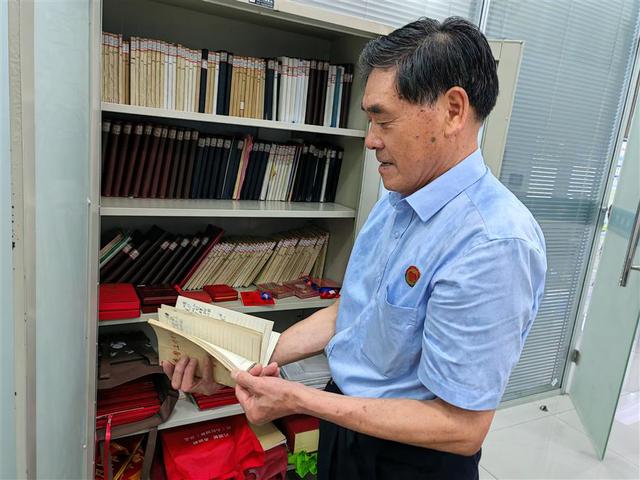Fengqiao Experience: Lighting up the path for private entrepreneurship
Wan Lixin
When I set foot on the state-of-the-art Fengqiao Xueyuan (Fengqiao University) campus in Fengqiao, Zhuji, I still had some difficulty trying to link the Fengqiao Experience with the verve and vibes of private entrepreneurship Zhejiang has been known for.
A week's crammed itinerary of visits, interviews, and brainstorming supplied the missing link, affording us a glimpse of the social engineering that helps private businesses thrive.
The Fengqiao Experience first came into being in the early 1960s as an exemplary local practice in dispute settlement that tended to view contradictions between ourselves and the enemy first as those among the people themselves, thus leading to fewer arrests without compromising social security. The practice was promoted nationwide after Chairman Mao gave his written approval in November 1963.
Obviously, the campus testifies to how local governance continues to be informed by the Experience, even as its connotation adapts to changing times with its shift from political to economic and social ramifications.
Singled out as the embodiment of the Experience of the New Era was 74-year-old Yang Guangzhao, an ex-policeman who was summoned back to his job only three days after his retirement in 2010, at the insistence of local residents.
As an expert mediator, his seniority was actually a positive factor. He has a Lao Yang Mediation Center, with several younger staff members working under his mentoring. In 2018, Yang was honored nationally as one of CCTV's Ten Figures in Legal Affairs. His business card notes another honor: National Excellent People's Policeman.
Some locals prefer to call Lao Yang instead of dialing 110, even when they are not in Zhuji's jurisdiction.

Yang Guangzhao, 74, flips through one of his work journals. Yang's 136 diaries from over three decades of mediation work are in a cabinet at a local police station, along with some of the accolades he has received.
The cases referred to the center are insignificant in some respects. For example, consider the instance of a woman who suffered minor injuries after an argument with her spouse. The husband had parked his tractor in front of the gate, which irritated his wife, who let out a torrent of abuse.
In the ensuing scuffle, the wife ended up sustaining injuries forensically characterized as slight. The wife started a legal action, which may have resulted in the husband being detained or imprisoned.
The couple had two daughters, one of whom was married, and the other was still in college.
The police forwarded the case to Lao Yang's center after identifying it as an isolated annoyance over a minor issue.
Using an approach Yang termed back-to-back to avoid escalation in a premature encounter between the couple (Yang summarized six approaches in his toolkit), the husband agreed to offer his wife a formal apology and 100,000 yuan (US$14,000) in compensation after several rounds of mediation sessions. It proved to be a win-win situation for both the family and society as a whole.
Such mediation sessions can last several years, and the disputing parties may ultimately reject any out-of-court settlement. However, the likelihood of mediation in Lao Yang's cases is considerable. He mediated 1,050 of the 1,070 cases referred to him by the legal authority.
Lao Yang pointed out that most quarrels in a community or village of familiar people can be more complicated than quarrels between strangers in a large city because the real cause of a quarrel between village neighbors may be traced to a long-standing grudge, and failure to address these underlying causes may not result in lasting peace.
At the conclusion of the interview, Lao Yang led us to a cabinet containing 136 copies of his work journals, which were meticulous and accurate accounts of every case he had handled over the years.
The fact that Lao Yang is not alone in this mediation work is a relief. Volunteer mediators, including middle-aged women with a track record of resolving domestic disputes, are another formidable force in the resolution of disputes.
Children are another significant beneficiary of these efforts to settle disputes. In collaboration with various entities for the care of children, 184 juvenile delinquents have been reunited with their families in recent years as the number of left-behind children has increased.
(Tang Liangjia and Wu Zixuan, MA candidates in international journalism at Shanghai International Studies University, contributed to the article.)
原文链接:https://www.shine.cn/opinion/2308096033/


 |松江校区| 中国上海市文翔路1550号(201620)
|松江校区| 中国上海市文翔路1550号(201620)